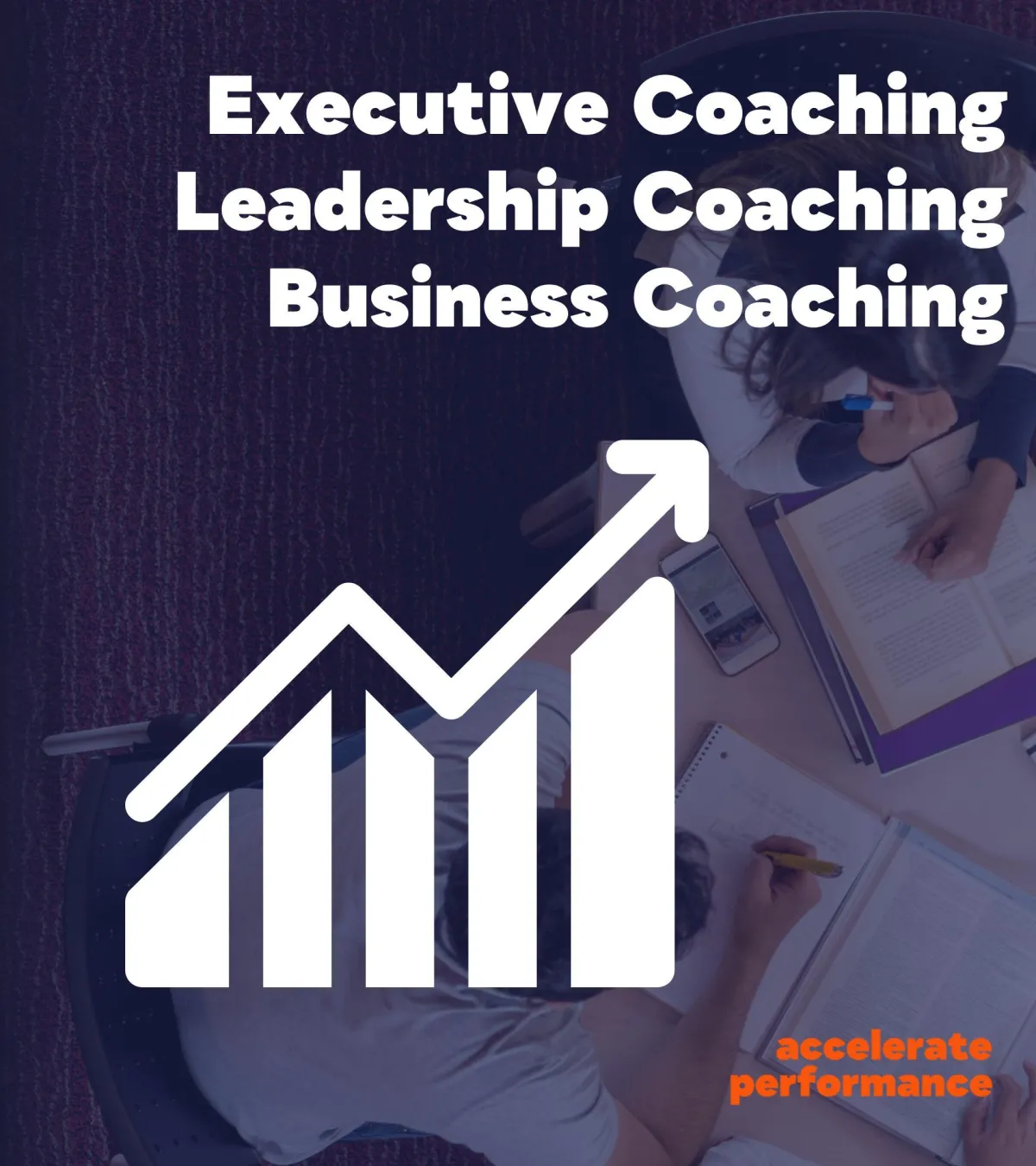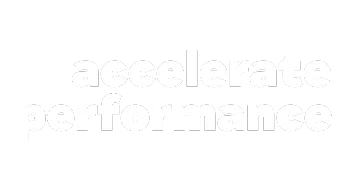We’ve Got You Covered

Lead Generation
Social media Ads, Google ads or totally free lead gen strategies; we have the tried & proven know-how to get you qualified leads that convert.

Social Media Management
Managing your socials doesn't have to be overwhelming. Save time on scheduling content and responding to comments and messages.

Content Creation
Whether you need blog posts, website copy, or social media updates, we can help you stand out from the pack and attract more customers.

Sales Funnels
We specialise in creating a custom funnels that fits your unique needs and helps you convert more leads into customers.

Reputation Management
With our Review Request System™, we can help you build a positive online presence and ensure that your customers see you as the best option.

SMS Marketing
Incredibly effective way to reach new customers, increase loyalty among current customers, and drive more sales at low cost. When done right.

Website Development
We'll work with you to create a website that reflects your unique brand and that will help you stand out from the competition.

Email Marketing
We'll help you create eye-catching emails that will grab your readers' attention, and turn it into action in form of more replies and sales.
Executive Coaching, Leadership Coaching & Business Coaching in the UK
Unlock your potential. Accelerate your career. Transform your business.
Why Coaching Works
Unlike training courses, executive and leadership coaching is practical, personalised, and focused on real-world challenges. Each session is tailored to the individual, delivering immediate insights and long-term transformation.
The result?
Individuals grow faster, earn more, and achieve more.
Businesses reduce costs, perform better, and retain top talent.
Executive Coaching UK – for C-suite and senior leaders
Leadership Coaching Benefits – for managers and future leaders
Business Coaching Services – for entrepreneurs and high-growth organisations
Are you ready to unlock your potential or develop your leadership team?
Contact us today to discover how executive coaching and business coaching can accelerate growth for you and your business.

Executive Coaching & Leadership Coaching for Individuals
If you’re ambitious and want to rise faster in your career, executive coaching and leadership coaching give you the tools to succeed. Unlike generic training programmes, coaching is personalised, confidential, and results-driven – designed to help you overcome challenges and achieve measurable progress.
With professional coaching, you can:
Accelerate career progression – step into senior roles faster with the confidence to succeed.
Increase earning potential – coaching helps you build the skills businesses reward most.
Develop leadership presence – learn how to influence, inspire, and lead teams effectively.
Take on more responsibility – expand your role and prove you’re ready for the next step.
Build resilience and adaptability – thrive in fast-changing business environments.
Executive coaching in the UK is now one of the most powerful investments professionals can make in themselves – driving faster career growth, higher salaries, and lasting success.
Business Coaching & Leadership Development for Companies
For businesses, investing in regular coaching for executives and senior leaders delivers a direct return on investment. Stronger leadership creates stronger businesses.
The benefits of business coaching services include:
Cost reduction – clearer decision-making reduces waste and inefficiency.
Efficiency gains – leaders learn how to optimise people, systems, and resources.
Revenue growth – inspired leadership drives innovation, strategy, and performance.
Improved customer relationships – coached leaders build trust and deliver better experiences.
Lower sickness & employee churn – effective leadership reduces stress and improves retention.
Future-proof leadership pipeline – ensuring continuity and growth in competitive markets.
In short: executive coaching for businesses creates measurable results – higher profits, lower costs, and more engaged employees.
Executive & Leadership Packages
Package 1: Strategic Vision & Organisational Leadership
Purpose: For executives who want to sharpen their strategic thinking, develop long-term vision, and enhance their ability to lead organisations through growth and change.
Programme Overview:
Session 1: Defining authentic leadership style and strengths
Session 2: Strategic visioning – shaping the future of the organisation
Session 3: Systems thinking & decision-making in complexity
Session 4: Leading through uncertainty and change
Session 5: Aligning organisational values, culture, and strategy
Session 6: Building high-performing executive teams
Session 7: Stakeholder mapping and influence strategies
Session 8: Managing organisational risk and resilience
Session 9: Executive presence and communication at the board level
Session 10: Consolidation & long-term leadership roadmap
Package 2: Executive Presence & Influence
Purpose: For leaders looking to refine gravitas, communication, and influence to operate effectively at board and stakeholder levels.
Programme Overview:
Session 1: Understanding executive presence & personal brand
Session 2: Storytelling for impact – influencing through narrative
Session 3: Communication mastery – verbal, non-verbal, virtual
Session 4: Emotional intelligence & empathy in leadership
Session 5: Influence without authority – navigating power dynamics
Session 6: Persuasive presentations & media/boardroom confidence
Session 7: Managing conflict with authority and diplomacy
Session 8: Negotiation strategies & stakeholder engagement
Session 9: Leading with authenticity and trust
Session 10: Future positioning – embedding influence and visibility
Package 3: Leading People & Culture
Purpose: For executives seeking to create thriving, high-performance cultures that attract and retain top talent.
Programme Overview:
Session 1: The psychology of leadership – motivation and mindset
Session 2: Defining organisational culture and values
Session 3: Talent management & succession planning
Session 4: Coaching and mentoring skills for executives
Session 5: Inclusive leadership and diversity strategies
Session 6: Driving engagement and innovation through culture
Session 7: Leading through difficult conversations and feedback
Session 8: Building resilience and wellbeing in leadership teams
Session 9: Change leadership – embedding new behaviours
Session 10: Sustaining a legacy of people-focused leadership
Package 4: Resilience, Performance & Growth
Purpose: For executives who want to strengthen resilience, optimise performance, and maintain sustainable growth in demanding environments.
Programme Overview:
Session 1: Defining peak performance for executives
Session 2: Energy and time management for sustainable leadership
Session 3: Cognitive resilience – managing stress and pressure
Session 4: Building habits for high performance
Session 5: Growth mindset & continuous learning at the top level
Session 6: Emotional agility – adapting to challenges
Session 7: Decision-making under pressure
Session 8: Work–life integration for executive wellbeing
Session 9: Leading by example – resilience in the boardroom
Session 10: Long-term executive growth plan
Note: These are examples of our popular packages. Packages can be created to suit the individual based on their current situation and goals. There is complete flexibility.
One-to-One NLP Coaching
Focus on Personal and Professional Change with first class NLP Coaching
Do you feel you could achieve more? Or feel stuck where you are right now?
Do you want to change jobs or go for that promotion?
Or, maybe, you could benefit from clearing out those negative and limiting thoughts that hold you back?
Whatever it might be, our one-to-one NLP Coaching will enable you to unleash your full potential.
These sessions are typically run online for between 1-2 hours per session and are comprehensive.
1-2 hours per session
Online via Zoom
A series of sessions
Breakthrough* session included
Create Your Future® included
Ongoing email support option
What is a *Breakthrough Session?
To give you the best opportunity to implement your newfound focus, objectives, goals, plans, or whatever you are changing, we will guide you through a 'Breakthrough Session' that enables you to clear limiting decisions, negative emotions, and other elements that have been holding you back. We help you Break Through these factors so you can move forward with purpose.

The Real Reason Workplace Conflicts Escalate | Accelerate Performance
While most people run from conflict, walking straight through it is often the best way forward.
During my career, I've seen promising partnerships collapse. I've watched organisations haemorrhage money and talent because nobody knew how to address friction before it became toxic.
The data tells a sobering story. UK businesses lose £28.5 billion annually to workplace conflict. A company with just 20 employees could be losing over £52,000 each year to unresolved tensions.
Conflict resolution isn't a skillset most of us are born with. It's a skill you can develop. And the principles that work in boardrooms also work in living rooms and with friendships.
Let me show you how.
Why Conflict Feels Impossible To Resolve
Conflict triggers our threat response. Your heart rate increases. Your thinking narrows. Your body prepares for fight or flight, not nuanced conversation.
This physiological reaction explains why smart people say stupid things during arguments. Your prefrontal cortex, responsible for rational thought, gets overridden by your amygdala's panic alarm.
Understanding this changes everything.
When you recognise that your racing pulse and defensive thoughts are biological, not personal failures, you can create space between stimulus and response. That space is where resolution lives.
The problem is that most people never learn this. Only 30% of leaders feel confident managing conflict effectively, despite 70% of employees considering it a vital leadership skill.
There's a massive gap between what's needed and what's delivered.
The Framework That Works Everywhere
Effective conflict resolution follows a consistent pattern, regardless of setting.
Acknowledge the issue directly.
Avoidance amplifies conflict. The longer you wait, the more resentment builds, and the harder the resolution becomes.
In your home, this might sound like: "I've noticed tension between us about household responsibilities. Can we talk about it?"
With friends: "I felt hurt by what happened last week. I'd like to understand your perspective."
At work: "We seem to have different views on this project direction. Let's find a way forward that works for both of us."
Direct acknowledgement does two things. It validates that something real is happening, and it signals your willingness to engage rather than avoid.
Create the right environment.
Timing and setting matter more than most people realise.
Don't attempt resolution when either party is hungry, tired, or stressed. Don't have important conversations in public spaces where people feel exposed. Don't ambush someone with a serious discussion when they're focused on something else.
At home, this means choosing a calm moment, not during the chaos of morning routines or late-night exhaustion.
With friends, it means suggesting a private setting where both people feel comfortable and unhurried.
In the workplace, it means scheduling dedicated time rather than catching someone between meetings or in open-plan offices where colleagues can overhear.
Listen without planning your response.
This is harder than it sounds.
Most people listen just long enough to formulate their counterargument. They're not actually hearing the other person. They're waiting for their turn to speak.
Real listening means focusing entirely on understanding the other person's perspective, even when you disagree. It means asking clarifying questions. It means reflecting back what you've heard to confirm understanding.
"So what I'm hearing is that you felt excluded from the decision-making process. Is that right?"
This simple act of confirmation does something powerful. It shows the other person that you're genuinely trying to understand, not just win.
Separate the person from the problem.
Conflict escalates when it becomes personal. The moment someone feels attacked as a person rather than challenged on a specific issue, defences go up and resolution becomes nearly impossible.
Focus on behaviour and outcomes, not character and identity.
Instead of: "You're so disorganised and it's driving everyone mad."
Try: "When deadlines get missed, it creates pressure for the whole team. How can we prevent that?"
Instead of: "You never listen to me."
Try: "I don't feel heard when I'm interrupted. Can we agree to let each person finish their thoughts?"
The shift from "you are" to "what happened" or "how I felt" removes the personal attack whilst keeping the issue visible.
Brainstorm solutions together.
Resolution isn't about one person winning and the other losing. It's about finding a path forward that both parties can accept.
This requires creativity and flexibility. It means being willing to compromise on methods whilst staying clear on what matters most to you.
At home, this might mean negotiating household responsibilities based on preferences rather than rigid equality. Maybe one person hates cooking but doesn't mind cleaning, whilst the other feels the opposite.
With friends, it might mean acknowledging different communication styles and finding a middle ground. Perhaps one person needs more frequent contact whilst the other needs more space.
In the workplace, it might mean exploring multiple approaches to a project rather than insisting on a single "right" way.
Agree on specific actions.
Vague commitments lead to repeated conflicts. "I'll try to be better" or "We should communicate more" sound good but mean nothing.
Effective resolution requires concrete, measurable actions.
"I'll send you a project update every Friday by 3pm."
"We'll alternate who chooses our weekend plans."
"I'll check in before making decisions that affect your work."
Specificity creates accountability. It gives both parties clear expectations and removes ambiguity about whether the agreement is being honoured.
Follow up and adjust.
Resolution isn't a single conversation. It's an ongoing process.
Schedule a check-in to assess whether the agreed solutions are working. Be willing to adjust if they're not. Treat it as an experiment, not a binding contract carved in stone.
"We agreed to try this approach for a month. How's it working for you?"
This follow-up demonstrates that you're committed to actual resolution, not just ending an uncomfortable conversation.
Why Workplace Conflict Demands Different Skills
Professional conflicts carry unique complications. Power dynamics, career implications, and organisational politics add layers that don't exist in personal relationships.
A disagreement with your manager isn't the same as a disagreement with your partner. The stakes, the power balance, and the consequences differ fundamentally.
Managers spend between 20-40% of their time dealing with conflict. Not managing it effectively. Just dealing with it. That's up to two full days each week consumed by tensions that could have been resolved with better skills.
The financial cost is staggering, but the human cost might be worse. 88% of employees have witnessed poor morale due to conflict. 23% have left jobs because of it.
Yet 72% of organisations lack formal conflict resolution policies. They expect people to figure it out on their own, without training or support.
The research shows what happens when organisations invest in resolution skills. Companies with strong conflict protocols see 25% higher employee satisfaction. 95% of those with training report finding positive resolutions.
Training works. But most organisations don't provide it.
The Skills That Separate Good Leaders From Great Ones
Leadership and conflict resolution are inseparable. You cannot lead effectively if you cannot navigate tensions.
Emotional intelligence matters more than technical expertise.
Emotional intelligence influences 58% of job performance. It enables you to understand and regulate your own emotions whilst empathising with others.
But here's the uncomfortable truth: 95% of people believe they're self-aware, whilst only 15% actually are.
That gap explains why so many conflicts escalate unnecessarily. People think they understand their own triggers and biases, but they don't. They react from blind spots they don't know exist.
Developing genuine self-awareness requires feedback, reflection, and often external perspective. It means being willing to hear difficult truths about how your behaviour affects others.
Active listening requires practice.
Most people think they're good listeners. Most people are wrong.
Active listening means giving someone your complete attention. It means not checking your phone, not thinking about your next meeting, not mentally composing your response.
It means asking questions to deepen understanding, not to catch someone in a contradiction. It means being comfortable with silence whilst the other person gathers their thoughts.
In nearly 30 years of leading teams, I've found that the single most powerful thing you can do in conflict is to truly listen. Not to agree. Not to concede. Just to genuinely understand.
When people feel heard, their defensiveness drops. The conversation shifts from battle to collaboration.
Clarity prevents most conflicts.
Many workplace conflicts stem from unclear expectations, ambiguous communication, or assumed understanding.
"I thought you were handling that."
"I assumed we agreed on this approach."
"I didn't realise that was your responsibility."
These statements appear in nearly every organisational conflict I've encountered.
The solution is ruthless clarity. Overcommunicate expectations. Confirm understanding explicitly. Document agreements. Follow up in writing after verbal conversations.
It feels excessive until you calculate the cost of misunderstanding.
Timing determines outcomes.
Addressing conflict too early can seem like overreacting. Addressing it too late means resentment has calcified into something much harder to resolve.
The right moment is usually earlier than feels comfortable. When you first notice a pattern, not after it's become entrenched.
"I've noticed we've had different perspectives on the last few projects. I'd like to understand your thinking better so we can align going forward."
This conversation feels awkward. But it's infinitely easier than the conversation that happens six months later after repeated friction has damaged the working relationship.
When Conflict Becomes Productive
Not all conflict is destructive. Research shows that over 50% of people report that well-handled conflict leads to improved relationships, better understanding, and more creative solutions.
40% say it increases team trust.
The difference between destructive and productive conflict lies entirely in how it's managed.
Productive conflict focuses on ideas, not people. It welcomes diverse perspectives rather than demanding conformity. It treats disagreement as a path to better outcomes, not a threat to harmony.
In my experience leading growth initiatives, the best solutions emerged from teams that could disagree constructively. When everyone nods along without pushback, you get groupthink and missed opportunities.
But productive conflict requires psychological safety. People need to know they can disagree without career consequences, personal attacks, or social ostracism.
Creating that safety is leadership work. It means modelling openness to challenge. It means thanking people who raise difficult questions. It means addressing conflicts directly rather than letting them fester.
The Investment That Pays Compounding Returns
Conflict resolution skills compound over time. Each difficult conversation you navigate successfully makes the next one easier.
You learn to recognise your triggers. You develop techniques that work for your personality and context. You build a reputation as someone who addresses issues directly and fairly.
This reputation becomes an asset. People trust you with difficult conversations. They're more willing to raise concerns early because they know you'll engage constructively.
Teams with strong resolution skills move faster. They don't waste energy on unspoken tensions or political manoeuvring. They address friction quickly and return to productive work.
The organisations that invest in developing these skills see measurable returns. 30% reduction in employee grievances. 25% higher satisfaction ratings. Fewer departures due to interpersonal conflict.
But the real return isn't captured in statistics. It's the projects that succeed because teams could work through disagreements. It's the talent retained because people felt heard and valued. It's the innovation that emerges when diverse perspectives can clash productively.
What Changes When You Master Resolution
Mastering conflict resolution transforms relationships across every domain of your life.
At home, you stop avoiding difficult conversations. You address issues when they're small rather than waiting until they explode. Your relationships deepen because you can navigate disagreement without threatening connection.
With friends, you maintain long-term relationships through life changes and different perspectives. You don't lose people over resolvable conflicts.
At work, you become the person others want on their team. You accelerate your career because you can handle the interpersonal complexity that stops others. You build influence because people trust you to navigate difficult situations fairly.
The skill compounds. Each conversation builds your capacity for the next one.
But it requires commitment. You have to be willing to engage when avoidance feels easier. You have to prioritise relationships over being right. You have to develop self-awareness about your own patterns and triggers.
The question becomes: Are you willing to invest in this skill?
Because the alternative is continuing to lose time, money, relationships, and opportunities to conflicts that didn't need to escalate.
Conflict is inevitable. Resolution is optional.
The choice is yours.
Let our happy customers tell their story
We think our courses and coaching are great, but our customers should have the last word. Here is a selection of endorsements.

Accelerating Your Performance Every Day
Accelerate Performance is on a mission to enable people and business to achieve great things through Advisory, Coaching, Consulting, Executive Leadership Development, and Training. .
@ Copyright 2025 - Accelerate Performance
Made with ♥ In London, GB
